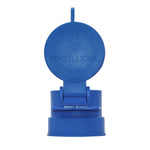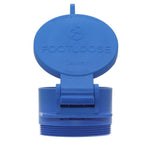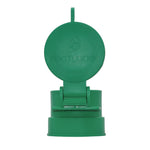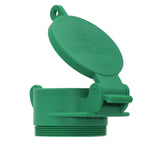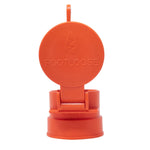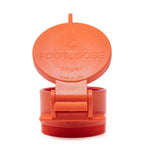You have no items in your shopping cart.
A home’s plumbing system is not a place where you want to make compromises. Poor-quality equipment and components can lead to water leaks (or worse, sewage leaks), water contamination, mold damage, and so much more. It all begins with a knowledgeable and specialized plumbing professional and a lineup of top-quality and well-suited equipment. If you’re navigating the complex world of residential plumbing equipment, let this buying guide steer you in the right direction.
Key Types of Residential Plumbing Equipment and Components
What types of equipment should you be looking for as you repair or assemble a residential plumbing system? It can be broken down into a few different categories depending on how the plumbing structure is set up and whether a well is involved.
Residential Well Products
While placing a residential well requires its own set of equipment and professional expertise, there are products you need to maintain and protect an existing well, too. There are three primary types of items that should be on your shopping list: well caps, well plugs, and well protectors.
Well Caps
A well cap seals the upper end of a well that protrudes from the ground to keep contaminants out. There are well caps with and without vapor vents depending on the particular well’s needs.

What should you look for in a well cap? Buy a cap with locking capabilities to prevent vandalism and to prevent critters from getting in. Look for a well cap from a manufacturer with a reputation for quality so your cap will have a strong seal and long-lasting construction. Some well caps are easier to install than others, so choose an installation-friendly product to keep your costs and hassle low.
Well Plugs
A well plug is necessary for regularly testing and monitoring a residential well. This plug allows you to gain access to the well as needed for sampling without compromising the seal on the cap.
As you shop for well plugs, look for products with tamper-proof construction. Choose a well plug that has a durable construction but is easy and efficient to install.
Well Protectors

A well protector is a sheath-like piece of equipment that blocks rain water, chemical runoff, and other contaminants from getting into a residential well so the well water remains clean and safe.
What should you look for in a well protector? These products are typically made of metal, so a corrosion-resistant product is crucial. Look for a well protector with a raintight cap that is lockable for the ultimate shield.
Pneumatic Pipe Plugs
Pneumatic pipe plugs are an essential component of a residential drain-waste-vent system. There are two primary types of pneumatic pipe plugs: bypass plugs and blocking plugs. Bypass plugs keep the area sanitary and safe while also allowing the material to keep flowing through the system. Blocking plugs, on the other hand, are necessary when you want to block all materials from flowing.
Plumbing Pipes
Pipes are the bread and butter of a residential plumbing system. Each plumbing system needs to be designed based on the specific structure and needs, which includes choosing the optimal types of pipes. The primary options include:
- PVC pipes: A highly popular and inexpensive type of plumbing pipe for residences. These are durable, lightweight, cost-effective, and quick to install, but they may leach potentially toxic chemicals into the water over time. There are various types of PVC pipes, like UPVC and the chlorinated CPVC, each with its own properties and benefits.
- PEX pipes: A flexible type of plastic piping that is easy to install in tight places and is very low-maintenance but unsuitable for outdoor use.
- Copper pipes: A tried-and-tested type of piping that can withstand a wide range of temperatures and water pressure while avoiding the risk of leaching plastic particles into the water, although it’s more expensive and can be prone to leaks.
- Black steel pipes: An uncoated type of steel pipe that’s often used for residential water wells and sewage systems. While these pipes are long-lasting, they’re prone to corrosion, so they can’t be used to carry potable water to the home.
- Galvanized pipes: A type of pipe that was used often in older homes but isn’t used as often today. It’s very strong, but it does corrode, and it needs to be replaced after about 50 years—a relatively short lifespan.
- CSST pipes: A corrosion-resistant type of plumbing pipe that is flexible and easy to install while also being environmentally friendly, although it’s easily damaged and must be installed with precision.
- ABS pipes: A similar pipe to PVC piping but with more strength and an ability to withstand very cold temperatures, making it common for outdoor aspects of a plumbing system in cold climates.
All of these types of plumbing pipes have their ideal use cases, so the best purchase will depend on the residential structure, climate, building codes, and other factors.

Where to Buy Residential Plumbing Equipment
Where you buy residential plumbing equipment is just as important as the type of equipment and components you buy. Generally, your options are to purchase from a big box store (either in person or online), from a specialized shop or site, or directly from a manufacturer.
Some manufacturers make this easier than others. Some sell wholesale only, and others have minimal, disorganized ecommerce systems. Enviro Design Products aims to make every aspect of the buying process easy, offering fast shipping, competitive pricing, and friendly service for high-quality products.
Choosing the Best Residential Plumbing Equipment
When it comes to residential plumbing equipment and components, our experts are here to help you find the perfect fit. With your new knowledge in hand, browse our products today.



